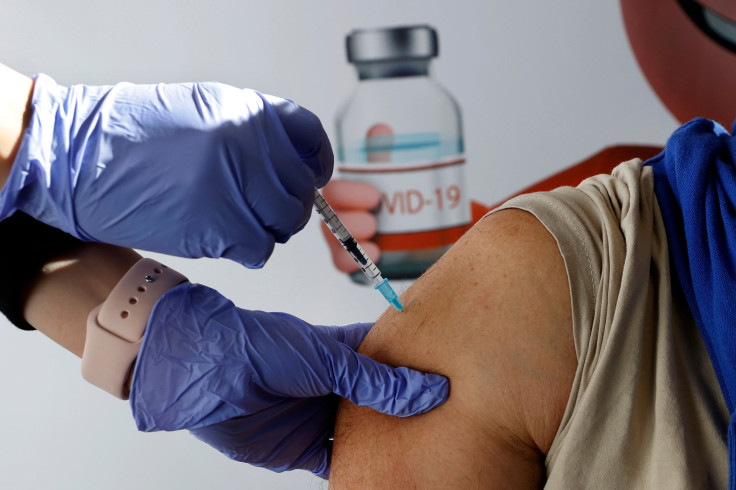COVID Vaccine Passport For Travel: All Important Details You Need To Know
KEY POINTS
- A vaccination pass or passport serves as proof that one has been vaccinated against COVID-19
- Airlines, nonprofits and companies are working on apps or systems to make it easier to check travelers' tests and vaccinations
- The International Air Transport Association, IBM and Commons Project Foundation have developed digital "passports"
With coronavirus vaccines now starting to roll out in the U.S. and abroad, many people may already be looking forward to traveling. But aside from the vaccine, they may also need a "vaccine passport" to make that happen.
A vaccination pass or passport would serve as proof that one has been vaccinated against COVID-19. To make it easier to check travelers' documentation, airlines, industry groups, nonprofits and tech companies have been working on their own mobile app or system where individuals can upload details of their coronavirus test results and vaccinations and create digital credentials that could be presented in order to enter public locations.
One example of this is the digital Travel Pass developed by the International Air Transport Association that will provide airlines and governments documentation that the traveler has received a COVID-19 vaccine or was tested for the virus. Etihad Airways and Emirates will begin using the travel pass within the next few weeks.
Nick Careen, an executive at I.A.T.A., told The New York Times of the Travel Pass, “It’s about trying to digitize a process that happens now and make it into something that allows for more harmony and ease, making it easier for people to travel between countries without having to pull out different papers for different countries and different documents at different checkpoints."
Aside from I.A.T.A., other vaccination passes or passports currently being developed or rolled out include IBM's Digital Health Pass and the World Economic Forum and the Commons Project Foundation's digital health passport CommonPass.
As more people get vaccinated in the coming months, certain activities will likely start becoming exclusive to those who have been inoculated. For example, a third of the attendees of Sunday's Super Bowl LV at Raymond James Stadium in Tampa, Florida, for example, will be vaccinated healthcare workers, while the rest will be ticketed fans, according to the NFL.
Aside from negative COVID-19 tests, governments and health authorities may soon require proof of vaccination from people who want to enter their countries. The vaccine passport would then be a significant part of everyone's daily life in the coming months, or possibly years.
“One key element vital for the restart of tourism is consistency and harmonization of rules and protocols regarding international travel," Zurab Pololikashvili, secretary-general of the United Nations World Tourism Organization, explained in an email to New York Times.
“Evidence of vaccination, for example, through the coordinated introduction of what may be called ‘health passports’ can offer this. They can also eliminate the need for quarantine on arrival, a policy which is also standing in the way of the return of international tourism,” Pololikashvili added.
Requiring a traveler to provide proof of vaccination is not new as authorities and travel agencies have already been doing this for several decades.
In certain countries, for example, tourists are required to present docuementation that they have been vaccinated against various diseases such as yellow fever, rubella and cholera. Once a traveler has proven that they were vaccinated, they will be given a signed and stamped "yellow card" known as an International Certificate of Vaccination.
Health authorities have noted that although the process and the objective will be similar, the difference between what is being developed today and the past years is its digital concept.
Although vaccine passes don't necessarily have to be digital, they would make the process of checking a lot smoother.

© Copyright IBTimes 2024. All rights reserved.





















